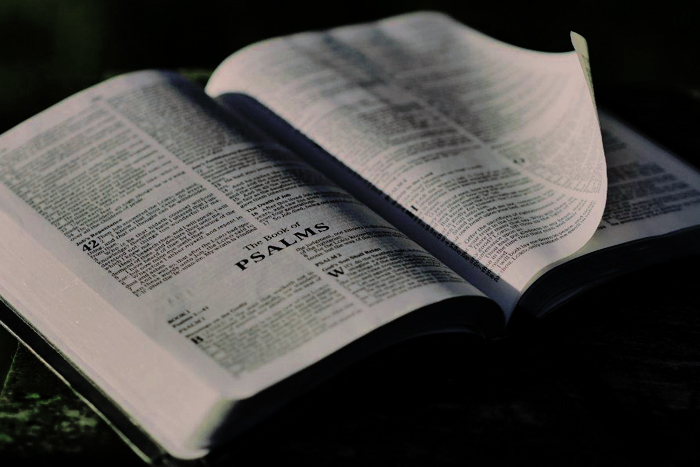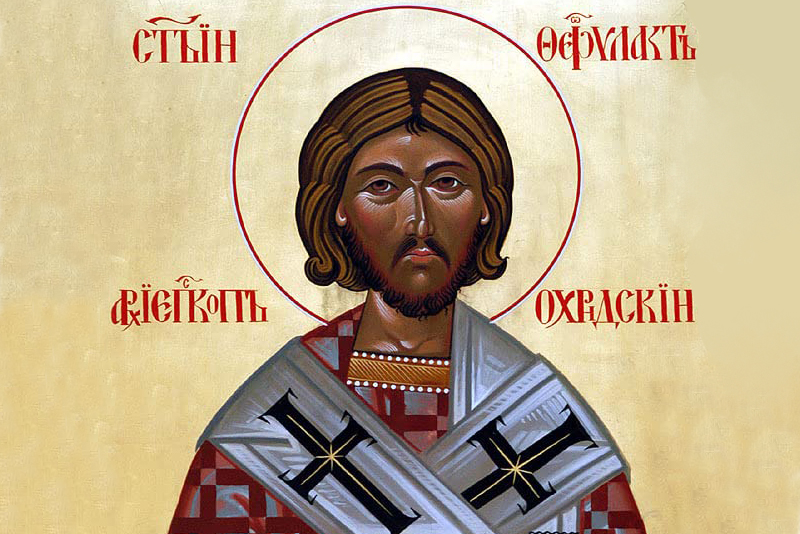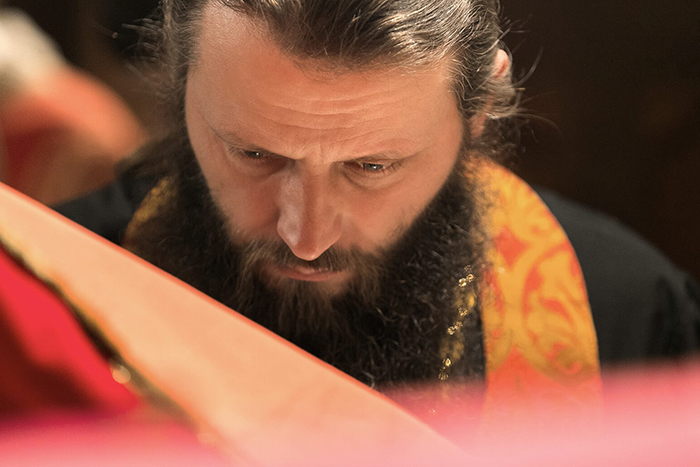
Saint John Chrysostom called Psalms the words of the Holy Spirit. Saint Basil the Great said the following about it: … it is a book that shows, firstly, the teaching of Revelation in life, and secondly, helps to fulfill it … The book of Psalms embraces everything that all other sacred books provide. It foretells the future, brings to memory the past, and gives the law for life and rules for action. In other words, the Book of Psalms reveals the laws of heavenly life to us, but according to this universal teacher of the Church, it does not only open them but also teaches us to follow them. It teaches an Orthodox Christian to comprehend and attain them, so that we can follow the right path to salvation in earthly life with God’s help.
Saint Ambrose of Milan wrote the following, “The grace of God breathes in all Scripture, but in the sweet Book of Psalms it breathes more than anywhere else.”
Why is “Blessed is the Man” (so called after its opening verse) the first psalm?
This is because it clearly states that the law of God (the commandments of the Lord) is the main essence of every human being’s life and all things. Moreover, it is the source of this life. A man (every human being, not just a man but a woman as well) who attempts to live according to God’s commandments receives the highest joy, that is, bliss. The Fathers used to refer to it as the likeness of God. The man who tries to implement the Law of God in his earthly existence shall be like a tree planted by the rivers of water, that bringeth forth his fruit in his season; his leaf also shall not wither; and whatsoever he doeth shall prosper (Psalm 1:3). That is, the person would be connected to the source of divine grace as if he were a tree growing near a water spring, and would have a full-blooded life so that even a small leaf on his tree would not dry out, die or fall away. That is because God will make him alive. However, the wicked and sinful ones are all those who do not obey the law of God, and are dead inside because they willfully reject God, the only source of life for all things. They do not live, they die: The ungodly are not so: but are like the chaff which the wind driveth away (Psalm 1:4). Such sin-loving people, who reject God’s commandments, are already dead. Not only do they die, but they are like dust that is scattered by the wind. It disappears, which basically happened to, for example, the Canaanites and many other nations who did not know the true God.
Therefore the Psalm ends with the words, For the LORD knoweth the way of the righteous: but the way of the ungodly shall perish (Psalm 1:6). This is the logical and natural conclusion of this psalm.
That is why the Lord, through the mouth of the holy Psalmist David, says to us, But his delight is in the law of the LORD; and in his law doth he meditate day and night (Psalm 1:2). Therefore, we must learn the law of the Lord day and night to attain eternal life and salvation. Then, the tree of our soul will be nurtured by the springs of the Holy Spirit.
The first verse of the first Psalm sounds like a powerful invitation to study and apply the law of God and His commandments: Blessed is the man that walketh not in the counsel of the ungodly, nor standeth in the way of sinners, nor sitteth in the seat of the scornful (Psalm 1:1).
The following verse of the psalm is quite difficult to interpret, Therefore the ungodly shall not stand in the judgment, nor sinners in the congregation of the righteous (Psalm 1:5). The Holy Fathers, in particular the Blessed Theodoret of Cyrus, St. Basil the Great and St. John Chrysostom, explain this fragment as follows. It does not say here in any way that sinners will not be resurrected. They will be resurrected during the Second Coming of Christ, which will take place at the end of the world. The Psalm says that the wicked will not be resurrected for judgment, i. e. they will not need the judgment, because their wickedness is so obvious that they will be judged immediately. They will be raised but not for a trial, but to hear the righteous sentence. Afterwards, they won’t be able to resurrect and enter the world of the righteous. They will be resurrected for eternal torture in Hell.
The Holy Fathers also wrote that the first Psalm is the foundation of all psalms, because it instructs all people to cultivate God-like virtues and brings them closer to the bliss of eternal life: that is why it starts with the word Blessed.
In Church worship practice, it is the first Psalm that begins the weekly cycle of singing and reading the Psalms during services. The first Kathisma, which begins with the verse “Blessed is the Man”, is scheduled for Sunday All-Night Vigil after the great litany (according to the Church rules, Sunday is the first day of the week, which starts with the Sunday Vespers).
Psalm 1 is the door to heaven, which opens to us when we read the Psalms. Let us walk through this door with the fear of God, so that we may receive imperishable treasures and eternal bliss!
Let us hurry here on earth to obey the commandments of God, and gather them in the life more readily than thousands of gold and silver (Psalm 119:72), for it is in them that the salvation for all mankind can be found.
Translated by The Catalogue of Good Deeds
Source: https://pravlife.org/ru/content/pochemu-v-psaltiri-pervym-razmeshchen-imenno-psalom-blazhen-muzh



